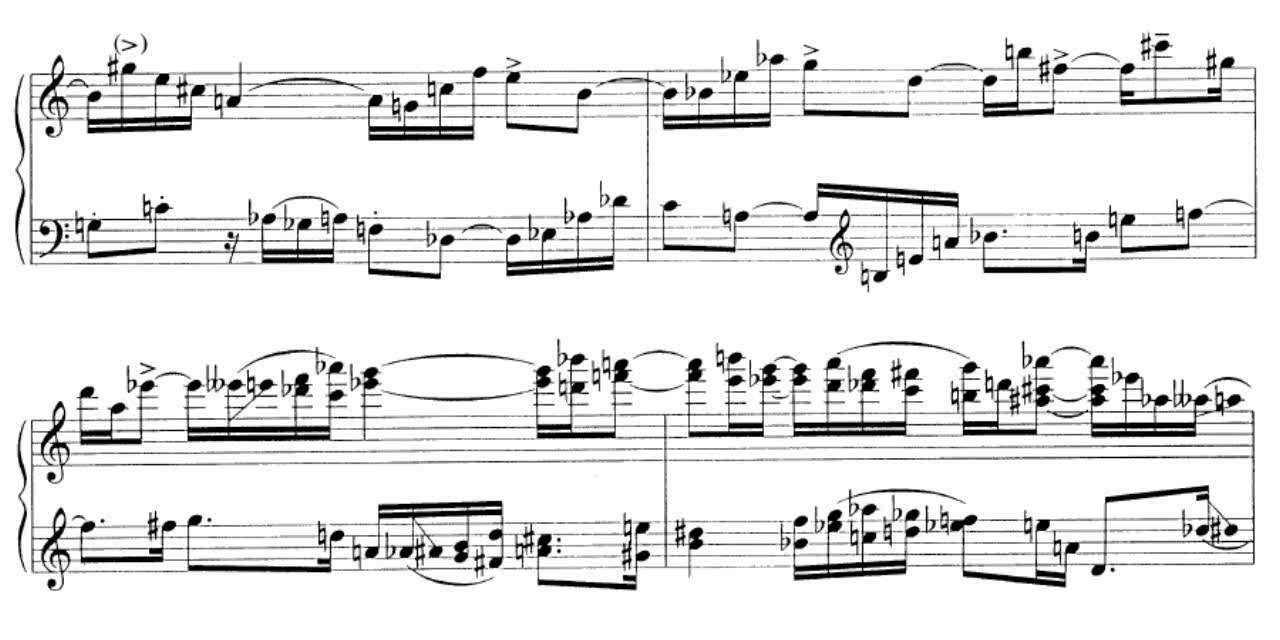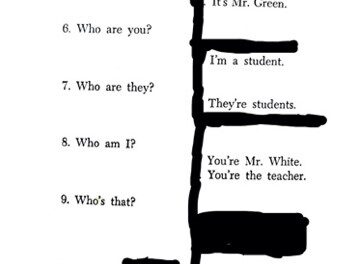In Issue 14.1 of the CR, you have a chance to read Ethan Chatagnier’s story, “The Unplayable Études.” (Read an excerpt here.) We love how the story meditates on grief, creativity, and other difficulties through the perspective of an acclaimed concert pianist. Here on the blog, we’re pleased also to share with you Chatagnier’s inspiration for the story:
Ethan Chatagnier:
When asked how obsessive one must be to learn to play the music of György Ligeti, the first thing pianist Jeremy Denk does is laugh. He says he spent four weeks brewing two pots of coffee each day so he could practice for seven hours. During this Fresh Air interview, he describes the music of Ligeti as a “chromatic nightmare,” as attempts to screw with your mind. Ligeti, Denk says, has “written music at the edge of the human possibility for performing it. That is, so fast and complex as to be almost impossible to keep track of.”
My story “The Unplayable Études” grew from that quote, but it focuses on the idea of music composed to be just barely beyond human capability rather than just barely within it. There are actually many composers who have written music designed to challenge even virtuosos, but the pianist in “The Unplayable Études” focuses on two in particular. She’s attached to Ligeti’s early composition Invention, though it’s not among his most difficult pieces:
She contrasts it with Maurice Ravel’s Gaspard de la nuit, written in 1909 to one-up the difficulty level of Mily Balakirev’s Islamey:
You can hear the difficulty in Gaspard de la nuit, just as you can in Ligeti, but this piece is more direct, less jarring and tortuous. One article calls it a triathlon for pianists based on the different challenges of its three movements, whereas Denk describes Ligeti’s études almost as mental riddles.
You might recognize other—more household—names in discussions about the most challenging piano pieces. Certain compositions by Chopin and Liszt. Rachmaninoff’s Piano Concerto no. 3.
Going beyond those are Conlon Nancarrow’s compositions for player piano, one of which can be found here:
These pieces, relieved of the constraint of human playability, create an interesting debate about the necessary ingredients for art. Does it need a human channel, a human performer? Does each interpretation need to risk failure? Is a computer’s reliability cheating? Perhaps we in the literary arts should be glad to be spared such debates, as we need no intermediary between writer and reader.
Yet the debate over difficulty, over readability rather than playability, does have legs for us writers. Jonathan Franzen and Ben Marcus famously hashed out that argument in the New Yorker and Harper’s, respectively. When labyrinthine sentences or byzantine plots try to buck a reader off, some readers will hop off the ride and others will cleave tighter. I’m thinking here of Pynchon, Wallace, Gaddis, and so on. In fact, when I listen to Ligeti, I think of Donald Barthelme, whose sentences are not hard to read. Like Ligeti, however, Barthelme is best known for short pieces, pieces that resist easy meaning, that will not go where the heart wills them.
For good measure, let me leave with you with one more of Ligeti’s études, no. 14, “Infinite Column,” considered to be among his most difficult to play.











